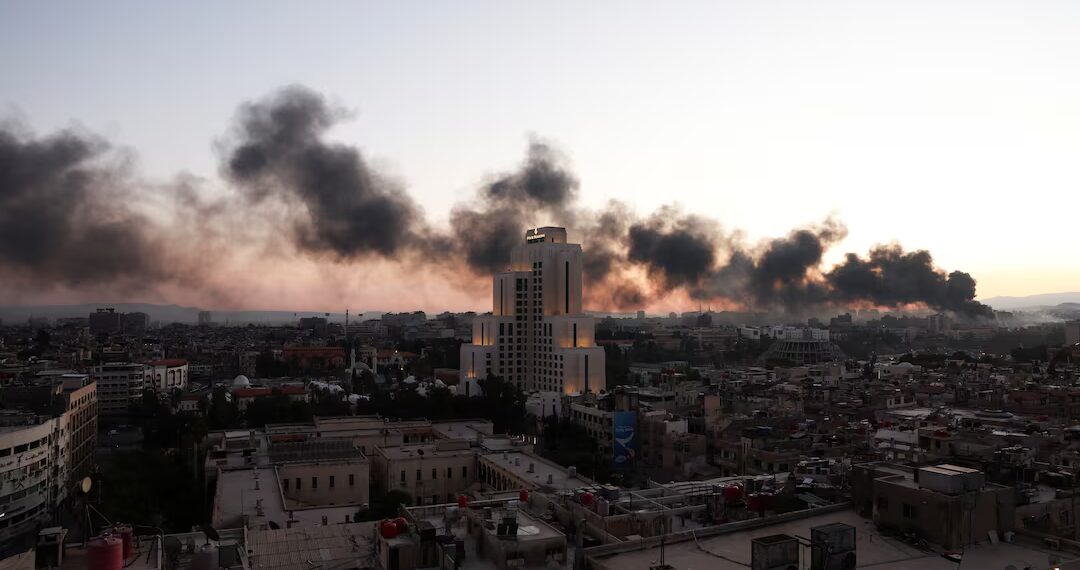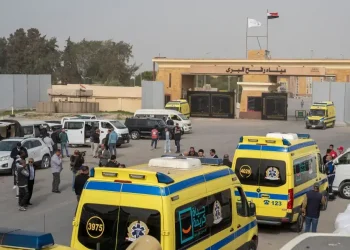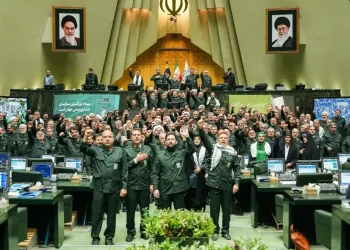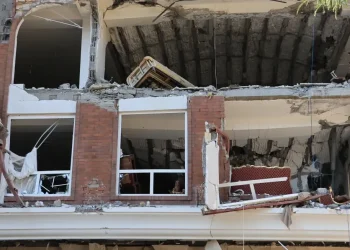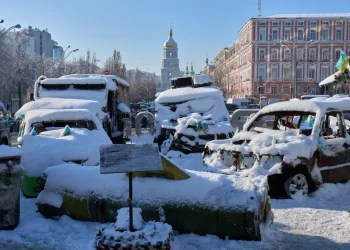Syrian Rebels Overthrow Assad, Reshaping Middle East Dynamics
DAMASCUS, Dec 8 (Reuters) – Syrian rebel forces stormed into Damascus on Sunday, toppling President Bashar al-Assad and abruptly ending nearly 60 years of his family’s authoritarian rule. The lightning-fast advance marked a dramatic reversal in Syria’s 13-year-long civil war and redefined the geopolitical landscape of the Middle East.
This seismic event dismantled a cornerstone of Russian and Iranian influence in the Arab world. Assad and his family reportedly sought asylum in Russia, while his sudden fall disrupted Iran’s weapons supply routes and jeopardized Moscow’s Mediterranean naval base. The victory could also herald the return of millions of refugees who have spent years in camps across Turkey, Lebanon, and Jordan.
For Syrians, the end of the conflict brought a wave of relief after years of unimaginable suffering—hundreds of thousands killed, cities obliterated, and an economy crippled by sanctions. Rebel leader Abu Mohammed al-Golani, addressing jubilant crowds at Damascus’s historic Umayyad Mosque, declared, “A new history is being written in the entire region.”
A Police State Crumbles Overnight
Assad’s regime, infamous for its brutal political prisons and repression, disintegrated in a matter of hours. Freed prisoners, many jailed for years, streamed through the streets of Damascus, rejoicing and recounting their ordeals. Families reunited in tearful celebrations, while chants of “We toppled the regime!” echoed across the city.
The capital’s streets bore striking signs of change. Assad’s images were torn down, checkpoints abandoned, and looters raided government facilities. Columns of smoke rose from areas previously targeted by Israeli airstrikes. Despite the uncertainty, residents celebrated their newfound freedom with gunfire and chants of “Freedom” in the city’s main square.
New Leadership and Challenges Ahead
Rebel leaders, once aligned with extremist factions but now striving for broader appeal, pledged a transitional government to rebuild Syria. Golani, whose coalition evolved from Syria’s former al-Qaeda branch, assured the nation there would be no turning back, declaring, “The future is ours.”
Amidst these celebrations, world leaders reacted cautiously. Israeli Prime Minister Benjamin Netanyahu credited Israel’s recent military campaigns against Iranian and Hezbollah forces for Assad’s downfall. Meanwhile, French President Emmanuel Macron praised the end of Assad’s “barbaric” regime, while calling for global support to aid Syria’s recovery.
Aftershocks Across the Region
The swift fall of Assad stunned neighboring countries and global powers alike, raising concerns over potential instability. The Syrian rebel victory follows years of intense regional conflict, including the recent Gaza war. Jubilant crowds stormed Syrian embassies worldwide, replacing Assad-era flags with those of the revolution.
The aftermath also spells significant losses for Assad’s allies, Iran and Russia, who had propped up his regime for years. With Moscow preoccupied by the Ukraine war and Iran weakened by setbacks in Gaza and Hezbollah’s retreat, the Syrian government found itself isolated in its final moments.
Rebuilding Syria
As Syria transitions into a new chapter, its challenges are immense. The nation requires billions of dollars in aid to rebuild infrastructure devastated during the civil war. The refugee crisis, one of the largest in modern history, has left deep scars both within Syria and abroad.
Despite these hurdles, optimism runs high among Syrians, who now envision a future free from tyranny. The coming months will test whether this newfound unity can forge a stable and inclusive Syria. As rebel forces consolidate power, the nation’s journey toward healing and reconstruction begins.
“The sacrifices of the Syrian people demand a future of peace, justice, and prosperity,” declared the rebel coalition, signaling the start of a monumental rebuilding effort.
This article was rewritten by JournosNews.com based on verified reporting from trusted sources. The content has been independently reviewed, fact-checked, and edited for accuracy, neutrality, tone, and global readability in accordance with Google News and AdSense standards.
All opinions, quotes, or statements from contributors, experts, or sourced organizations do not necessarily reflect the views of JournosNews.com. JournosNews.com maintains full editorial independence from any external funders, sponsors, or organizations.
Stay informed with JournosNews.com — your trusted source for verified global reporting and in-depth analysis. Follow us on Google News, BlueSky, and X for real-time updates.
